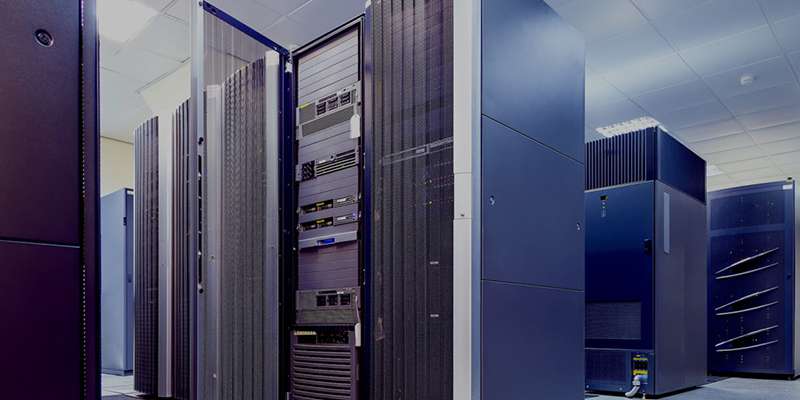Why Professional Development is the most important investment for your business.
Human Capital in the Data Center is an article by DCD Pro that offers career information, tips and advice on data center jobs.
The data center business is responsible for a staggering 2% of energy use worldwide and makes a hugely important contribution to the global economy. Given that millions of dollars can potentially be lost through data center downtime the tendency is to focus on the very obvious – footprint, connectivity, power, accessibility and so on – all of which have an impact on the data center’s reliability and uptime.
There is, however, a key attribute that is often – perhaps surprisingly – overlooked. The skill sets of the staff working within your data center. Michael Fluegeman, distinguished consultant and DCProfessional Development instructor said “As a consultant working with a wide variety of data center clientele, I find it astounding how many people in key positions don’t understand the very basics of data center facilities”.
“Human error is a major cause of data center issues. It is often documented at anywhere from 50-80% but it might be even worse. Equipment failure is sometimes reported to be the root cause, but reaching this conclusion could be necessary to protect someone’s job or reputation. Even when the root cause really is a component, somewhere along the line one or more humans designed, applied, constructed, installed, commissioned, operated, serviced and (maybe should have) replaced that component. Only knowledge and experience reduces critical facility error risk. “
Given the manner in which data centers have developed over recent years – from providing simple data storage and colocation through to hosting, providing managed services, Infrastructure as a service and further cloud-based services – the skills required of data center professionals are becoming more and more complex and need to cover many disciplines.
Depth of Expertise
The depth of expertise and professionalism of the people who work within a data center can have a dramatic effect on what is a crucial piece of every company’s infrastructure. And therein lies a problem. The data center industry, like other aspects of IT, suffers a skills shortage. Scratch below the surface and the issue becomes increasingly complex. The lack of IT talent is a global problem exercising businesses, academia and governments alike. When recruiter Hays Group recently compiled a list of top 10 skills that are lacking in today’s economy, IT was pinpointed as one of the top hard skills in demand around the world.
Similarly research from the Computer Technology Industry Association (CompTIA) found huge concerns among businesses that they are lacking core IT competences, and that this is having an impact on profitability, productivity, innovation, speed to market, security and customer service. Chief among the skills shortfall are networking/infrastructure, servers/data center management, storage/back-up, cybersecurity, database/information management, help desk/IT support and telecom/unified communications.
All of which feature heavily among the diverse skills sets needed to operate a data center successfully.
Age Profile = Skills Shortage
There’s no doubt that the IT skills gap appears a more difficult problem for the data center industry to solve than for other sectors of IT. It is one of the fastest growing – the latest DCD Census found that globally there are half a million people working in the data center industry, an increase of more than 13% since 2011. And, 60% of data center operators are concerned about an industry-wide skills shortage.
The difficulties come when you start to consider the age profile of data center staff – the business is characterized by a large body of older very experienced people who are fast approaching retirement age, and who are not being replaced by younger staff.
Fluegeman suggests that the number of younger staff isn’t the only issue. “For those early in their data center career it can take years to accumulate the required experience in practice. Unless one regularly changes jobs or work assignments, they can end up with a small amount of experience repeated many times, without learning much of anything new.”
Attracting Engineers
There are other issues where perhaps data center businesses have fallen short.
Outsourcing trends have meant that demand for junior staff has declined, while those who possess the necessary skills can demand higher salaries. There can also be a mismatch in remuneration and benefits between permanent and contract staff and recruiters point to contract staff often earning more than their permanent counterparts.
Most importantly though, the data center industry has not been marketed to appeal to engineering graduates – they may not be aware of the industry or may not consider it an attractive and glamorous option as a career path compared with software houses and internet businesses.
The industry is growing fast, and the skills gap is very real.
Retaining Skills
As cloud based environments become more prevalent in the commercial data center sector, workers need a broad set of skills. But even here it is more important than ever that businesses retain core engineering skills.
With such data center skills in short supply and high demand, the poaching of employees is an issue for many businesses. Industry commentators say that in mechanical and electrical engineering there has been a real lack of industry focus and as a result training has been lacking over the last 30 years.
In order to attract fresh talent, a sound training program delivering quantifiable professional development and a clear career path is vital.
Career development and training, with a clear and measurable framework for professional development, has never been more vital for the industry. Training is beneficial at a corporate and individual level – those with specialist qualifications receive on average 18.5% higher wages, showed findings of the DCD Global Census.






